We’re pleased to introduce the new professors who have joined the Faculty of Engineering since Fall 2020. Learn more about them, their research, and what they’re most excited about working on at McGill.
Peter Guo-hua Fu School of Architecture
Naomi Keena
Assistant Professor
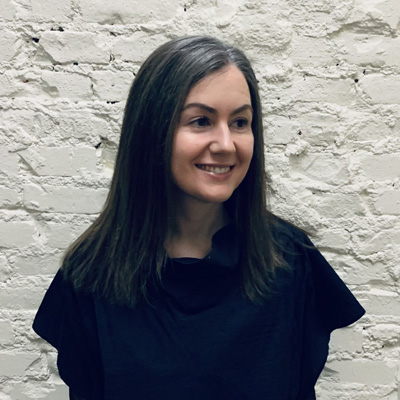 Dr. Naomi Keena’s research combines life cycle approaches to design with data visualization and computational techniques as a means to assess socio-ecological factors in architecture. She holds a professional architecture degree from University College Dublin, Ireland, an M.Sc. (Arch) from Pratt Institute, a post-professional M.Arch II degree in Environmental Parametrics from Rensselaer Polytechnic Institute (RPI), and a Ph.D. in Architectural Sciences from the Center for Architecture Science and Ecology (CASE), RPI. She conducted her postdoctoral training at Yale University’s Center for Ecosystems in Architecture (Yale CEA).
Dr. Naomi Keena’s research combines life cycle approaches to design with data visualization and computational techniques as a means to assess socio-ecological factors in architecture. She holds a professional architecture degree from University College Dublin, Ireland, an M.Sc. (Arch) from Pratt Institute, a post-professional M.Arch II degree in Environmental Parametrics from Rensselaer Polytechnic Institute (RPI), and a Ph.D. in Architectural Sciences from the Center for Architecture Science and Ecology (CASE), RPI. She conducted her postdoctoral training at Yale University’s Center for Ecosystems in Architecture (Yale CEA).
Areas of research: Sustainable architecture, climate change, and design; circular economy in the built environment; socio-ecological housing design; data visualization
Courses you’ll be teaching: Design Studio; Selected Topics in Architecture 1; Energy, Environment, and Buildings 1 (EEB 1)
Things you’re excited to get started at McGill: I’m excited to set up my new lab, TRACE (Think-tank and Research in Architecture and Circular Economy), and start working on some exciting projects in the area of data-driven and data-visualization approaches to Canada’s housing supply challenges, as well as circular economy approaches to reduce construction renovation and demolition waste in the building sector.
Favourite aspect of your work: I really enjoy working with interdisciplinary researchers. It’s great to hear and explore so many perspectives on a common research challenge we’re all trying to tackle.
Last book you read: Mad, Bad, Dangerous to Know: The Fathers of Wilde, Yeats and Joyce by Colm Tóibín
Something you like to do during your time off: I run
What’s something you can’t live without? Coffee
What’s on your work/lab playlists? The Daily podcast
Philip Tidwell
Assistant Professor
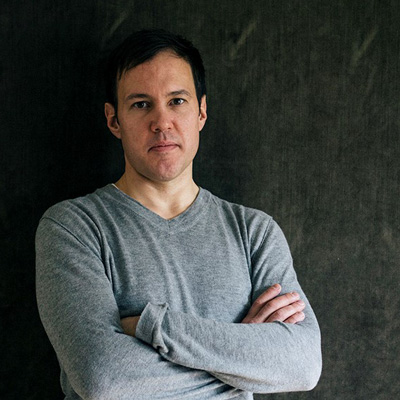 Philip Tidwell is an architect and educator with a focus on wood construction and emerging technologies in timber. His research and teaching consider the relationships between matter, form, and constructive technique, with a particular focus on wood. He recently published a book, New Standards, which examines the wooden housing industry in Finland during and after the Second World War.
Philip Tidwell is an architect and educator with a focus on wood construction and emerging technologies in timber. His research and teaching consider the relationships between matter, form, and constructive technique, with a particular focus on wood. He recently published a book, New Standards, which examines the wooden housing industry in Finland during and after the Second World War.
Areas of research: Wood architecture and building technology, with an emphasis on prefabrication; sustainable use of forest resources in architecture and construction
Courses you’ll be teaching: ARCH 240: Organization of Materials in Buildings; ARCH 672: Architectural Design Studio 1
Things you’re excited to get started at McGill: I’m part of the team working to develop the BARN (Building Architecture Research Node) project out at the Morgan Arboretum. I’m thrilled to be setting up a workshop there that will allow us to apply new ideas and methods of construction to full scale projects and prototypes. The facility will give us a chance to develop building systems that use regional materials to confront some of the most pressing challenges faced by cities and towns across the province.
Favourite aspect of your work: I’m not fond of the cliché division of “theory” from “practice,” but the most rewarding aspect of my work is watching my students develop their drawings and computer models in the physical world of the workshop. Architects are trained to analyze, invent, and test ideas through drawing, but we often keep the physical constraints of materials and construction at arm’s length. I love nothing more than to watch my students develop their ideas (and models) with a physical understanding of the components that they are working with.
Last place you lived: For the past ten or so years, I lived in Helsinki, Finland
Favourite subject in school: I did my undergraduate studies in St. Louis, where I was able to take some wonderful courses on the history and ethnography of jazz music. I still can’t believe that I was able to get course credit for listening to my record collection.
Last book you read: The Vegetarian by Hang Kang
What’s something you can’t live without? While relocating this summer, I spent two months waiting for my things to cross the Atlantic. I can’t count the number of days I wanted to ride my bike. I hope I never have to put it in a shipping container again.
Instruments you play: I played the drums for years, but fortunately for my neighbors, my kit has been in storage for quite some time.
Department of Bioengineering
Codruta Ignea
Assistant Professor
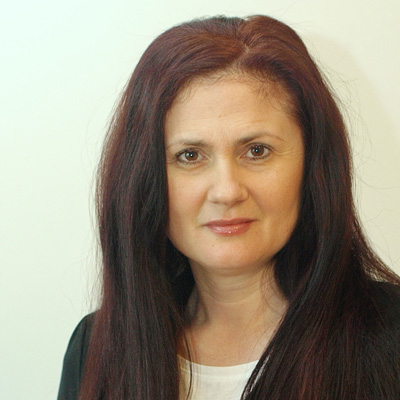 Intrigued by nature's chemical complexity, Dr. Codruta Ignea focuses her research on the discovery and production of high-value compounds or non-natural molecules using biological synthesis. She is the recipient of two prestigious postdoctoral fellowships from the Novo Nordisk Foundation and Marie Sklodowska-Curie Actions at the University of Copenhagen, where she pioneered the synthesis of new-to-nature terpenoids in yeast.
Intrigued by nature's chemical complexity, Dr. Codruta Ignea focuses her research on the discovery and production of high-value compounds or non-natural molecules using biological synthesis. She is the recipient of two prestigious postdoctoral fellowships from the Novo Nordisk Foundation and Marie Sklodowska-Curie Actions at the University of Copenhagen, where she pioneered the synthesis of new-to-nature terpenoids in yeast.
Areas of research: Synthetic biology and metabolic engineering
Courses you’ll be teaching: BIEN 267: Bioanalytical Methods in Bioengineering; BIEN 580: Synthetic Biology; BIEN 585: Metabolic Engineering
Things you’re excited to get started at McGill: Bringing my lab to a fully operational status
Career highlight you’re most proud of: I built my research from scratch, from the very first engineered yeast strain and the easiest compound to produce, to orthogonal systems and new-to-nature molecules
Last place you lived: Denmark
Favourite subject in school: Chemistry
How close friends would describe you: A perfectionist
Something you like to do during your time off: Playing with my dogs
Natalie Reznikov
Assistant Professor
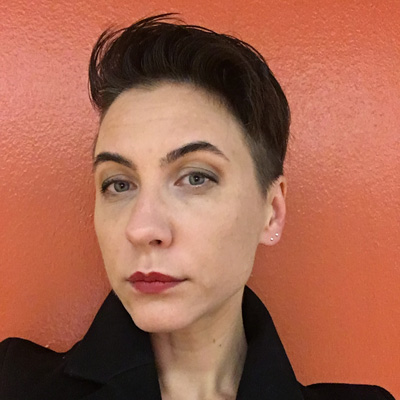 Originally trained as a dentist, Dr. Natalie Reznikov practiced dentistry in Jerusalem, Israel, for 8 years. She eventually recognized her true vocation as a researcher and “restarted” her career as a skeletal biologist. Natalie received her Ph.D. from the Weizmann Institute of Science in 2014, moved to Montreal in 2017, and joined McGill University as a faculty member in 2020.
Originally trained as a dentist, Dr. Natalie Reznikov practiced dentistry in Jerusalem, Israel, for 8 years. She eventually recognized her true vocation as a researcher and “restarted” her career as a skeletal biologist. Natalie received her Ph.D. from the Weizmann Institute of Science in 2014, moved to Montreal in 2017, and joined McGill University as a faculty member in 2020.
Areas of research: Studying structure-function relationships in living organisms (animals and plants); structural water and its role in the architecture and behavior of natural and artificial materials; biomineralization; novel approaches to 3D imaging and image analysis
Courses you’ll be teaching: BIEN 200: Introduction to Bioengineering; BIEN 219: Introduction to Physical Molecular and Cell Biology; BIEN 535: Electron Microscopy and 3D Imaging for Biological Materials
Things you’re excited to get started at McGill: Having started in the middle of the pandemic, I am not sure I know yet the full spectrum of the exciting things at McGill
Favourite aspect of your work: The open-endedness of research—being patient, observant, and aware of cognitive bias
Favourite subject in school: Chemistry
Last book you read: The Modern Myths: Adventures in the Machinery of the Popular Imagination by Philip Ball
Something you like to do during your time off: Sewing
Caroline Wagner
Assistant Professor
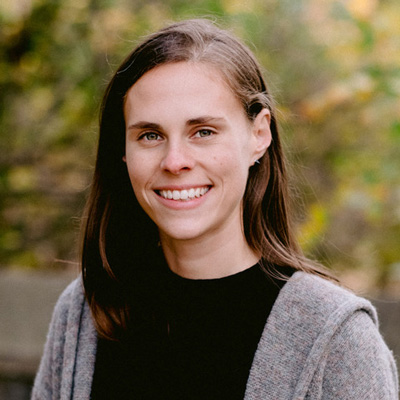 Dr. Caroline Wagner’s research focuses on understanding how biological fluids, like mucus, interact with pathogens in the body and affect their transmission between people at the level of populations. She is originally from Montréal and completed her undergraduate degree in Mechanical Engineering at McGill.
Dr. Caroline Wagner’s research focuses on understanding how biological fluids, like mucus, interact with pathogens in the body and affect their transmission between people at the level of populations. She is originally from Montréal and completed her undergraduate degree in Mechanical Engineering at McGill.
Areas of research: Disease transmission; biofluids; rheology; mathematical modeling
Courses you’ll be teaching: BIEN 314: Transport Phenomena in Biological Systems 1; BIEN 470: Bioengineering Design Project; Fundamentals and Rheology of Biological Fluids (new course for Winter 2022)
Things you’re excited to get started at McGill: Getting to teach and work in-person, meeting students and colleagues, wandering around the campus, and being involved with academic groups to promote equity and diversity for students and faculty
Career highlight you’re most proud of: Getting a job! We’ve also managed to put out some COVID modeling work in high impact journals recently, which has given me a chance to communicate the findings with a wider audience including various media outlets. I was also chosen as the Bioengineering Undergraduate Student Society “Professor of the Year” for 2020 which I was so proud of, particularly for my first year of teaching and onboarding remotely.
Favourite subject in school: Physics
Last book you read: The Family Firm by Emily Oster
Something you like to do during your time off: Cook!
What inspires/motivates you? My son, and going for hikes in nature
Department of Chemical Engineering
Samuel Huberman
Assistant Professor
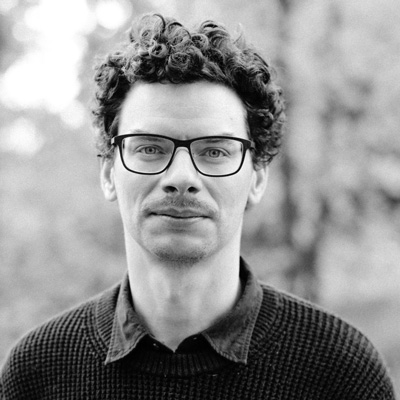 Dr. Samuel Huberman grew up in Montréal and then moved to Ontario to study Mechanical Engineering at the University of Waterloo. He then completed an MASc in Mechanical Engineering at the University of Toronto and from there, went on to complete a Ph.D. in Mechanical Engineering at MIT.
Dr. Samuel Huberman grew up in Montréal and then moved to Ontario to study Mechanical Engineering at the University of Waterloo. He then completed an MASc in Mechanical Engineering at the University of Toronto and from there, went on to complete a Ph.D. in Mechanical Engineering at MIT.
Areas of research: Using theoretical and experimental techniques to push our fundamental understanding of energy transfer at small length and time scales; thermal transport; condensed matter physics; density functional theory; molecular dynamics; ultrafast spectroscopy
Courses you’ll be teaching: CHEE 456/457: Design Project 2; CHEE 401: Energy Systems Engineering
Things you’re excited to get started at McGill: After living in a few different cities, I’m looking forward to returning to the place I’ve always called home. At McGill, I’m looking forward to working with students from diverse backgrounds on challenging scientific questions.
Department of Civil Engineering
Stephanie Loeb
Assistant Professor
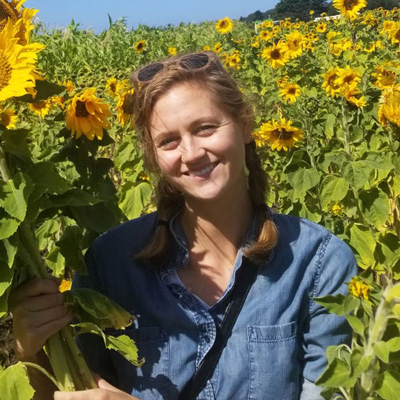 Prior to joining McGill, Dr. Stephanie Loeb was a postdoctoral fellow at Stanford where she studied the sunlight inactivation of human norovirus. She received her Ph.D. from Yale University, which focused on the environmental applications of light-activated and fluorescent nanomaterials. She has an MASc from the University of Toronto in Civil Engineering and she completed her Bachelor's degree in Physics and Nanoscience jointly between UofT and the National University of Singapore.
Prior to joining McGill, Dr. Stephanie Loeb was a postdoctoral fellow at Stanford where she studied the sunlight inactivation of human norovirus. She received her Ph.D. from Yale University, which focused on the environmental applications of light-activated and fluorescent nanomaterials. She has an MASc from the University of Toronto in Civil Engineering and she completed her Bachelor's degree in Physics and Nanoscience jointly between UofT and the National University of Singapore.
Areas of research: Removal of chemical and biological contaminants in water using sunlight, engineered light sources, and light-activated nanomaterials
Courses you’ll be teaching: CIVE 430: Water Treatment and Pollution Control; CIVE 660: Chemical and Physical Treatment of Waters
Things you’re excited to get started at McGill: I'm excited to start a dynamic research program that will work cross disciplinary, bringing together students and faculty from across the campus. McGill has top-tier research in a wide variety of disciplines—I look forward to making strong connections across the University and learning from the multitude of experts with our community.
Career highlight you’re most proud of: A highlight of my career was being interviewed by NPR. When my postdoctoral work at Stanford tracking coronavirus infections in wastewater gained national attention, I was interviewed by an NPR science correspondent for a radio show on that topic. The interview was featured on a national broadcast of All Things Considered, as well as the science podcast Shortwave. I am a huge podcast listener, so it was very cool to hear my own voice along with a community of scientists speaking out to help educate the public at the start of the pandemic.
Last book you read: Pale Blue Dot by Carl Sagan (I'm a huge Sagan fan), but I'm more typically reading science fiction, some of my favourite authors being Douglas Adams, John Wyndham, and Kurt Vonnegut
Something you like to do during your time off: Outside the lab, I like traveling, swimming, skiing, and listening to excessively long history podcasts
What’s something you can’t live without? Clean water! Not only is it essential for all life, but I also made a career out of it
What’s on your work/lab playlist? Always updating but at the top of my playlist right now is Cold Heart by Dua Lipa, Elton John, and PNAU
Daniele Malomo
Assistant Professor
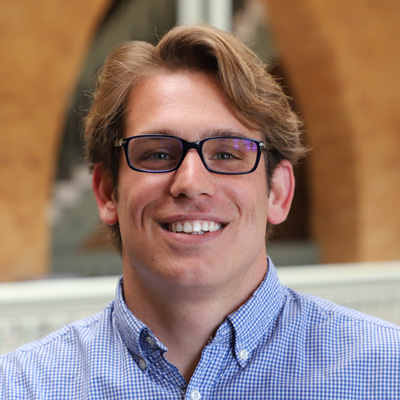 Dr. Daniele Malomo is an internationally recognized expert in earthquake engineering and numerical modelling of existing structures, with a special focus on non-engineered unreinforced masonry buildings. Since 2021, he has been Board Director of Canada’s International Council on Monuments and Sites (ICOMOS). He has received awards for his work from The Masonry Society (TMS), Pacific Earthquake Engineering Research Center (PEER), and the International Association of Bridge and Structural Engineering (IABSE).
Dr. Daniele Malomo is an internationally recognized expert in earthquake engineering and numerical modelling of existing structures, with a special focus on non-engineered unreinforced masonry buildings. Since 2021, he has been Board Director of Canada’s International Council on Monuments and Sites (ICOMOS). He has received awards for his work from The Masonry Society (TMS), Pacific Earthquake Engineering Research Center (PEER), and the International Association of Bridge and Structural Engineering (IABSE).
Areas of research: Structural and earthquake engineering; numerical modeling; collapse analysis; existing and historic structures; masonry mechanics
Courses you’ll be teaching: CIVE 463: Design of Concrete Structures; CIVE 206: Solid Mechanics
Things you’re excited to get started at McGill: My research lab! I am looking forward to working with McGill students in class and on research projects.
Last place you lived: Berkeley, California, USA. I am originally from Rome, Italy, where I lived for more than 25 years.
How close friends would describe you: “Daniele, please take a break from work”
Last book you read: My Family and Other Animals by Gerald Durrell
What’s on your work/lab playlist? Dire Straits, Johnny Cash
Department of Mechanical Engineering
Changhong Cao
Assistant Professor
 Dr. Changhong Cao teaches and conducts research in the field of manufacturing and advanced materials. His lab currently focuses on multiscale mechanical characterization (from sub-nm to cm), the development of manufacturing technologies from the micro/nano level, the synthesis of low-dimensional materials, as well as the investigation of the mechano-electrochemistry of battery materials. He received his Ph.D. from the University of Toronto and was a postdoctoral fellow at MIT before joining McGill.
Dr. Changhong Cao teaches and conducts research in the field of manufacturing and advanced materials. His lab currently focuses on multiscale mechanical characterization (from sub-nm to cm), the development of manufacturing technologies from the micro/nano level, the synthesis of low-dimensional materials, as well as the investigation of the mechano-electrochemistry of battery materials. He received his Ph.D. from the University of Toronto and was a postdoctoral fellow at MIT before joining McGill.
Areas of research: Experimental nanomechanics; micro/nanomanufacturing; advanced materials; 3D printing; MEMS
Courses you’ll be teaching: MECH 360: Principles of Manufacturing; MECH 500: Special Topics on Additive Manufacturing
Things you’re excited to get started at McGill: Interacting with brilliant colleagues and students
Career highlight you’re most proud of: I developed a monolithic MEMS device that enabled direct tensile testing of structures ~1,000 times thinner than human hair
Favourite aspect of your work: Getting my students excited about science and engineering
Last place you lived: Boston
Something you like to do during your time off: Mahjong, weightlifting, meditation
What inspires/motivates you? My family
Audrey Sedal
Assistant Professor
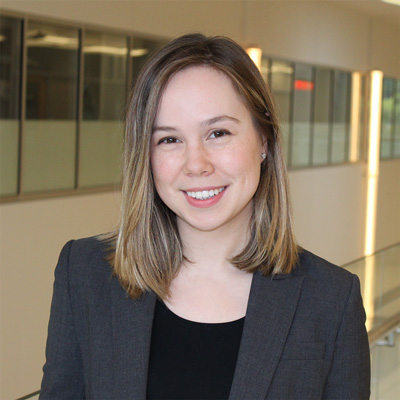 Dr. Audrey Sedal studies soft robotics. Her work incorporates continuum mechanics and machine learning to improve the design and control of soft robots. She has published in engineering and robotics venues including Proc. Royal Soc.A., Int. J. Robotics Research, J. Mechanisms & Robotics, Int. Conf. Rob. & Aut. (ICRA), and Intelligent Robots & Systems (IROS). Audrey received her M.S. and Ph.D. in Mechanical Engineering from the University of Michigan, Ann Arbor in 2018 and 2020, and her S.B. from MIT in 2015. In 2019, she was named a Rising Star in Mechanical Engineering.
Dr. Audrey Sedal studies soft robotics. Her work incorporates continuum mechanics and machine learning to improve the design and control of soft robots. She has published in engineering and robotics venues including Proc. Royal Soc.A., Int. J. Robotics Research, J. Mechanisms & Robotics, Int. Conf. Rob. & Aut. (ICRA), and Intelligent Robots & Systems (IROS). Audrey received her M.S. and Ph.D. in Mechanical Engineering from the University of Michigan, Ann Arbor in 2018 and 2020, and her S.B. from MIT in 2015. In 2019, she was named a Rising Star in Mechanical Engineering.
Areas of research: Robotics
Things you’re excited to get started at McGill: I am looking forward to doing interdisciplinary research as a part of the Centre for Intelligent Machines (CIM), and interacting with talented, creative students and colleagues.
Last place you lived: Chicago
Instruments you play: Guitar
Department of Mining and Materials Engineering
Philippe Ouzilleau
Assistant Professor
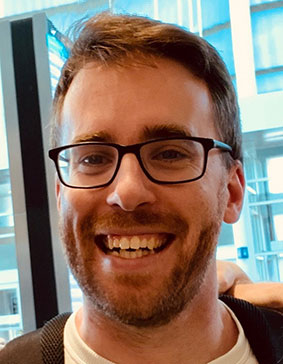 Dr. Philippe Ouzilleau is a materials and thermodynamic enthusiast. He works in the field of high temperature metallurgy (pyrometallurgy) for green energy applications, synthesizing novel materials using heat and carbon. He hopes to reduce the CO2 footprint of said materials.
Dr. Philippe Ouzilleau is a materials and thermodynamic enthusiast. He works in the field of high temperature metallurgy (pyrometallurgy) for green energy applications, synthesizing novel materials using heat and carbon. He hopes to reduce the CO2 footprint of said materials.
Areas of research: Pyrometallurgy; carbon materials; high temperature materials processing; thermodynamics; green energy lithium-ion batteries
Courses you’ll be teaching: MIME 350: Extractive Metallurgical Engineering
Things you’re excited to get started at McGill: The day I obtain my Graphitisation furnace, which will allow me to heat treat materials up to 3000°C (about 50% of the temperature at the surface of the sun)
Career highlight you’re most proud of: Becoming a prof at McGill in one of the best materials engineering departments in Québec
Last book you read: The Enigma by Alan Turing
Something you like to do during your time off: Playing video games
Instruments you play: Piano
What’s on your work/lab playlist? The entire soundtrack of The Lord of the Rings trilogy
